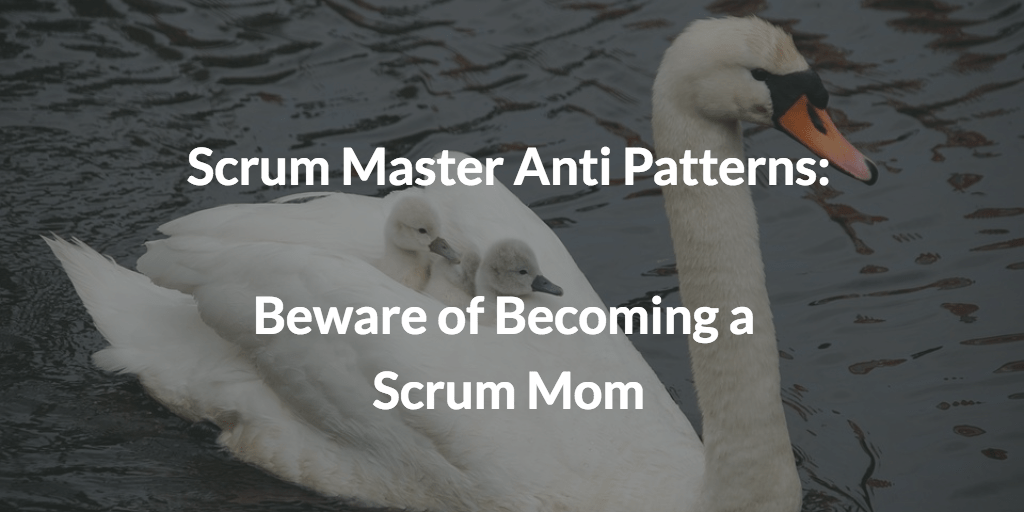Disclaimer: Of course, this post is in no way intended to be gender-specific. In my experience, there is no difference between the Scrum pop and the Scrum mom. This post is all about the emerging trend of Scrum helicopter parenting.
Beware the Scrum Mom
Trying to be supportive and do good, is most of the time an honorable thing. This is particularly true in your capacity as a Scrum master. However, doing too much good can quickly have the opposite effect. It’s a known Scrum anti-pattern, often referred to as the Scrum mom syndrome.
Read on to learn more about its manifestations, and the damage to your team caused by being overly protective.

Scrum Master Anti Patterns
By common understanding, Scrum’s host of ceremonies—the Scrum master—is a leadership role. Wielding no real authority, she can inspire, coach, mentor, and lead by example to further her team’s progress to become fully self-organized.
However, if you observe how this role is lived in practice, you can often identify two anti patterns: the Scrum manager and the Scrum mom. While the Scrum manager is easily identifiable by the teacher-like, patronizing attitude, the Scrum mom is more tricky to spot. What is (still) beneficial for the team, and what is just overly protective?
Scrum Mom’s Characteristics
The Scrum mom is generally shielding the team from the cold and cruel world, creating a safe & happy agile bubble. Some manifestations are:
- Scrum mom deals with all impediments personally, although practically any other team member could act, too.
- Scrum mom filters feedback from stakeholders, particularly any negative feedback. Often, she does so by not merely restricting access to the team, but basically shutting it off.
- Scrum mom is pampering the team, for example by running errands, or being the team secretary, sometimes bordering on the helper syndrome.
- Scrum mom is also preventing the team from failure whenever possible. This even applies, if failing would be easily fixable and wouldn’t be really damaging. (Remember: If you’re not failing, you’re not pushing hard enough…)
- Scrum mom is not really challenging the team. She seems to be content, once a certain level of proficiency is achieved.
- Scrum mom maybe setting boundaries, but is rarely enforcing them. She tends to tolerate damaging behavior from team member in the (futile) hope, the culprit will be insightful and improve over time.
- Scrum mom likes all her team members, but there will be often a favorite among them.
- Scrum mom’s motto: “Right or wrong, my team!”
If the topic resonates with you, you may be interested in the following links, too:
- Ben Linders: Why Scrum masters shouldn’t be the one solving all impediments
- Mia Horrigan: Confessions of a Scrum Mum
Conclusion
A Scrum master’s good intentions can become an impediment to the Scrum team’s progress. This is particularly true in the case of the Scrum mom when her shielding of the team prevents its members from learning by failing.
In the end, failure is not the opposite of success, but a necessary stepping stone towards success. Like parents, I believe, Scrum masters need to let go. They need to challenge and support their teams when they are venturing out into the big world on their own.
How is a Scrum team otherwise supposed to become self-organized?









